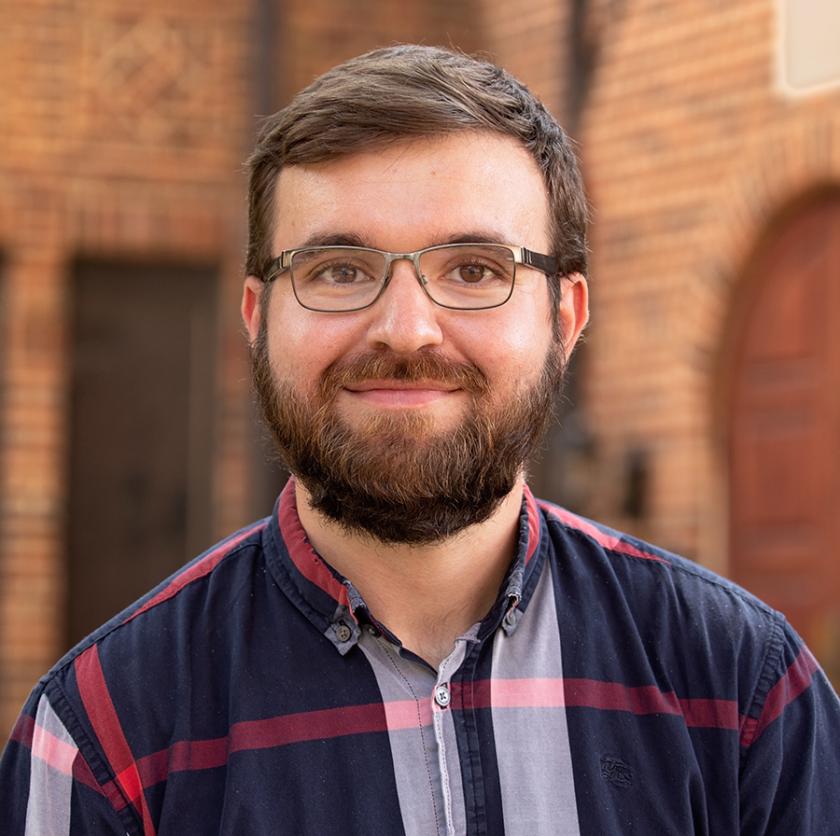
Isaac Wink worked at an immigration legal clinic following his undergraduate studies in history and public policy at the University of Chicago. Through his work with individuals applying for asylum in the United States, he discovered he enjoyed using his research skills to help people. Because of this, librarianship felt like a suitable career path.
Now pursuing a dual degree in the MA in history and MSLIS programs, Wink appreciates the variety of courses available at the iSchool, including specialized classes in "practical areas" such as copyright and e-resources management as well as classes he finds "intellectually challenging" like text mining. His studies have focused on digital humanities (DH), which applies programming methods to disciplines like history and literature.
"When done right, DH respects the unique expertise brought to the table by the traditional humanities and looks for opportunities to add to the conversation," said Wink. "DH librarians sit at the intersection of two academic fields, often considered separate from one another, and show patrons the doors between them."
Last semester, as part of his research on U.S.-Mexico borderlands, Wink conducted an exploratory data analysis of newspapers published in southern Arizona in the early twentieth century. He used text mining to analyze how the newspapers discussed Mexican and European immigration before and after the U.S. entered World War I.
Outside of class, Wink is gaining valuable professional experience with his graduate assistantships at the Help Desk and in the Instructional Technology and Design unit. Additionally, he is a member of the organizing committee for the Women's and Gender History Symposium, which will take place in March 2023. An avid cyclist, Wink enjoys rides around Urbana-Champaign, including those organized by the Bike Project, a nonprofit that promotes cycling and teaches bike maintenance.
After graduation, Wink plans to work as an academic librarian, where he can help students and researchers develop projects while pursuing his research interests.
"In any role I take in a library setting, I aim to lower the barrier of entry to resources, meet people where they are rather than expect them to come to me, and make my institution an equalizing force in society," he said.